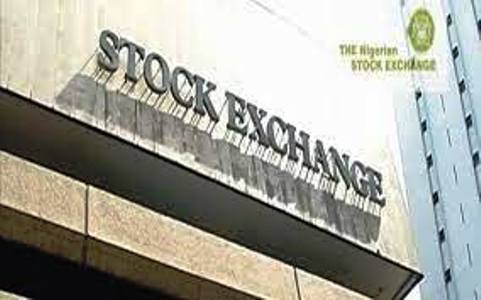Nigeria stock market due to prevailing insecurity, among other macroeconomic challenges continue to suffer loss as foreign investors have pulled out N1.64 trillion from the market in three years.
N642.65 billion in foreign portfolio investment outflow was recorded in 2018, while foreign investors withdrew N523.42 billion and N481.93 billion during the corresponding period in 2019 and 2020.
Read Also: Nigeria’s Diaspora Remittances Will Rise To $22bn – Report
Latest data from the Nigerian Exchange Limited (NGX) show that foreign investors withdrew N30.79 billion in January, N39.05 billion in February and N20.28 billion in March 2021, while domestic investors pulled out N86.35 billion in January, N69.28 billion in February and N93.31 billion during the same period.
Foreign inflow within the same period in 2018, 2019 and 2020 stood at N576.45 billion, N419.13 billion and N247.27 billion, totaling N1.24 trillion.
This huge outflow of capital has led to concerns about impact on the economy, as operators predict the precarious state of the stock market could worsen if factors impeding the nation’s economic growth were not tackled soon.
Operators said that given the increasing level of insecurity, kidnapping, recurrent farmers-herders clashes, unemployment, weak naira and GDP growth, rising inflation and dwindling revenue, government has to evolve new strategies to stop investment outflows.
Fund managers, Pension Fund Administrators (PFAs) and other investment companies were already pulling their funds from the stock market to fixed income market to ensure guaranteed investment return and avoid erosion of capital.
Nigeria is currently ranked 147th globally, according to the Global Peace Index (GPI) report released in November 2020, making it the third most terrorised country in the world for the second year running after Afghanistan and Iraq.
“In May 28, 2015, a day before President Muhammadu Buhari assumed office, the size of the Nigerian economy, measured by GDP was $594.76 billion. The foreign exchange rate per dollar was N197 and foreign debt was $15 billion. Inflation rate was 8.7 per cent. After five years, the economy as at December 2020 had shrunk to $487 billion, official foreign exchange rate per dollar is now N411, Inflation rate is 18.35 per cent and foreign debt has ballooned to almost $40 billion.”
According to analysts, the overall weak macroeconomic scenario sustained negative market sentiments in the past few years, coupled with the tensed socio-political space, has not encouraged successful primary market activities.
It is also on record that some planned IPOs have remained on hold due to prevailing negative market sentiments, driven by growing uncertainties fueled by unstable oil prices, and other macro-economic challenges
Since the global financial crisis of 2008 till date, no fewer than six companies have approached the market for IPO issuance. However, the listing of Seplat Petroleum Development Company Plc. and Transcorp Hotels Plc., in 2015, ended several years of IPO drought in the capital market. While Seplat, a global IPO, was 100 per cent successful, Transcorp Hotels recorded only 50 per cent subscription.
After four years of zero record from 2015, hope of a return of the era of IPOs was rekindled with the offer for sale of SAHCO Plc’s 406,074,000 ordinary shares of 50 kobo each at N4.65 per share in 2018. Since then, no company has approached the market for a new listing.

